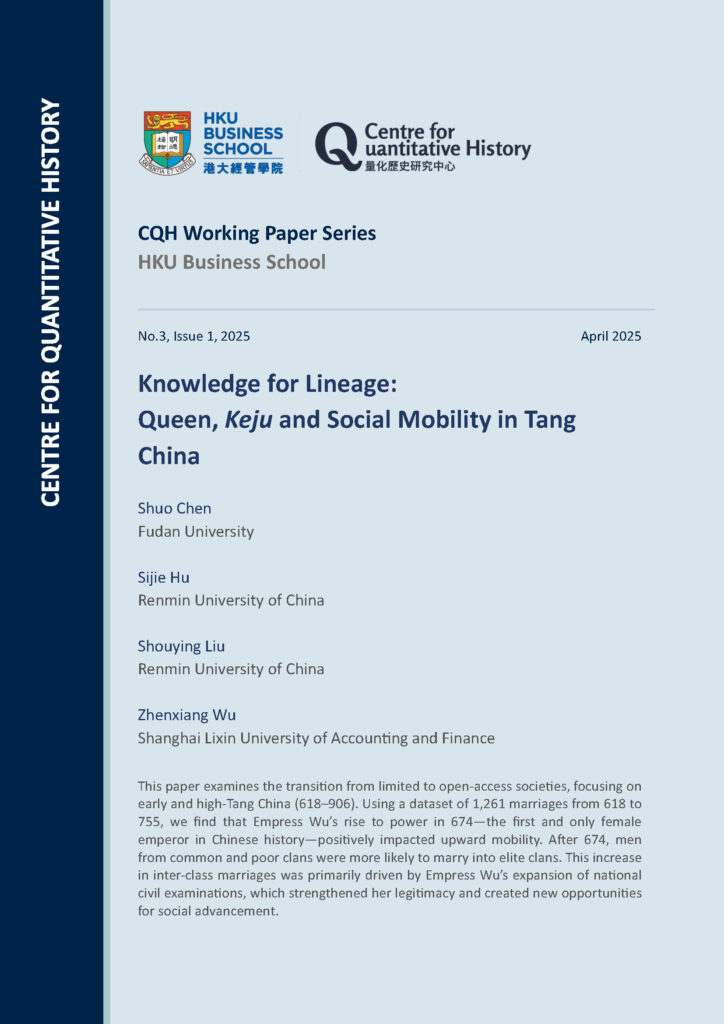
Published Date
April 30, 2025

Type

Research Cluster
State Capacity, Institutions and Development

Series
2025, Issue 1, No. 3

Copyright
Centre for Quantitative History, HKU Business School

This paper examines the transition from limited to open-access societies, focusing on early and high-Tang China (618–906). Using a dataset of 1,261 marriages from 618 to 755, we find that Empress Wu’s rise to power in 674—the first and only female emperor in Chinese history—positively impacted upward mobility. After 674, men from common and poor clans were more likely to marry into elite clans. This increase in inter-class marriages was primarily driven by Empress Wu’s expansion of national civil examinations, which strengthened her legitimacy and created new opportunities for social advancement.





